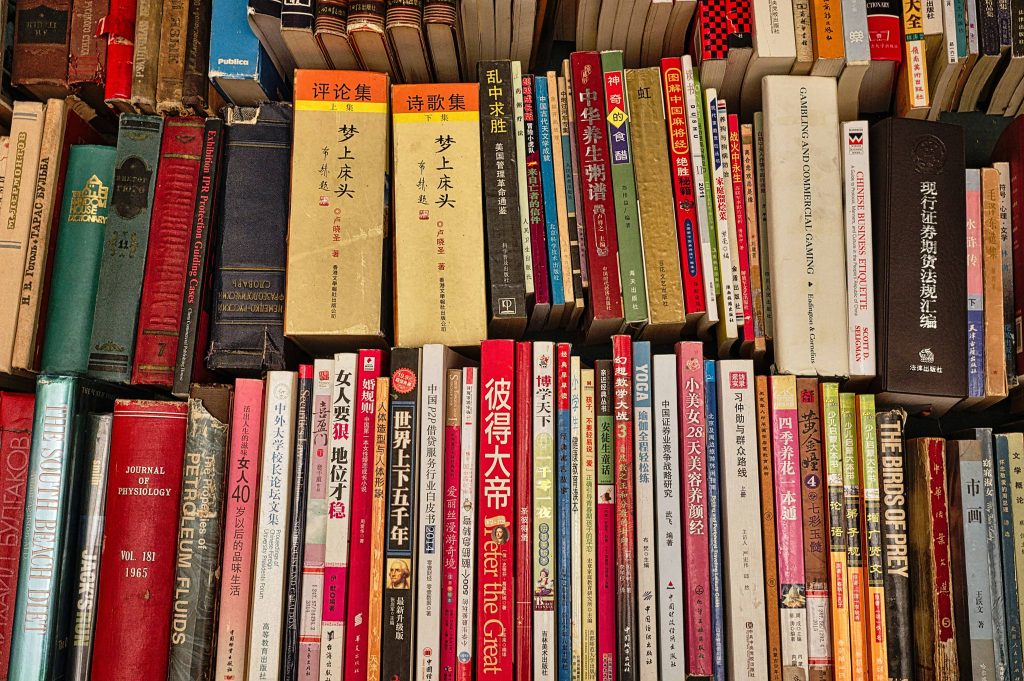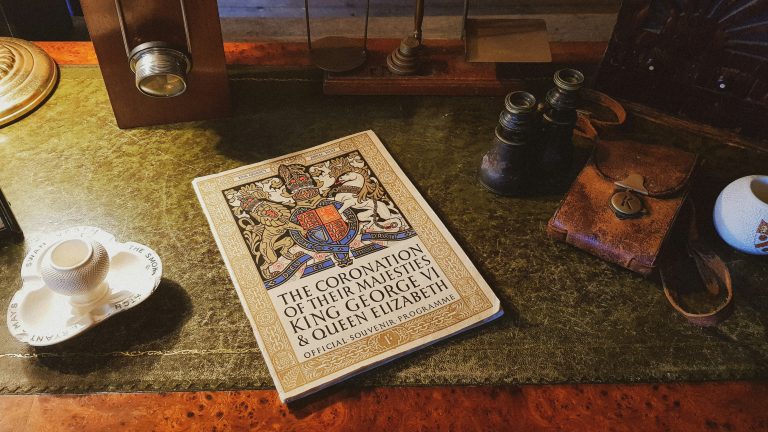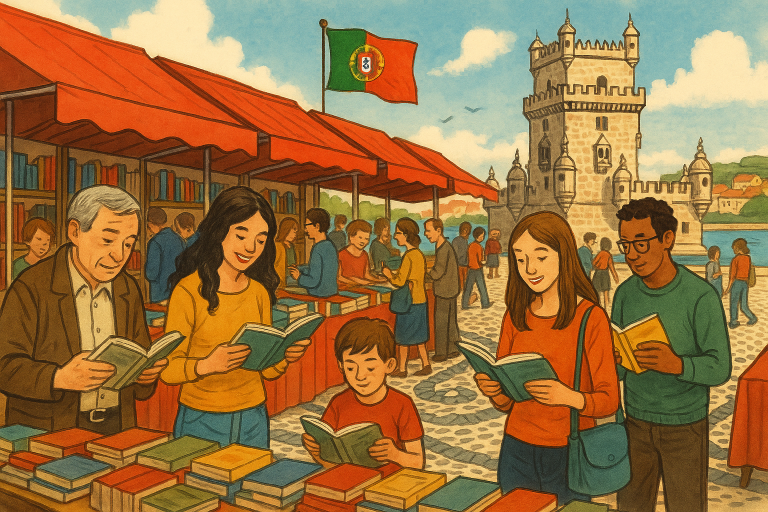Contemporary Literary Theory in Portugal: Key Frameworks and Insights
Contemporary Literary Theories in Portugal
In the field of literary studies, theory operates as both a methodological framework and a philosophical stance that allows readers to interrogate the multifaceted dimensions of literary texts. These frameworks are not only tools for academic dissection but are deeply embedded in how we comprehend culture, identity, and language itself. Contemporary literary theory, in particular, has revolutionized the interpretative landscape by introducing critical perspectives that prioritize diversity, ambiguity, and the politics of representation. In Portugal, this theoretical evolution has developed along distinctive lines, reflecting both its post-authoritarian historical trajectory and its engagement with Lusophone cultural diversity.
This article seeks to provide an in-depth exploration of how contemporary literary theories—broadly defined as those emerging and gaining prominence from the mid-20th century onward—have influenced Portuguese literary criticism and scholarship. Rather than focusing on specific literary works or authors, the emphasis lies in tracing the theoretical paradigms themselves, examining their reception, adaptation, and deployment in the Portuguese academic and intellectual context. The discussion encompasses structuralism and its post-structuralist successors, as well as feminist, postcolonial, queer, and ecocritical approaches, among others.
Overview of Contemporary Literary Theory
Defining “Contemporary” in Literary Theory
The term “contemporary literary theory” encompasses a wide array of critical approaches that have shaped the study of literature since the 1960s. These theories emerged in response to the limitations of earlier methods, particularly formalism and New Criticism, which tended to isolate texts from their sociohistorical realities. Contemporary theories emphasize that meaning is not fixed or inherent but is generated through interpretative processes shaped by culture, ideology, language, and identity. This shift marked a turn toward interdisciplinarity and a broader understanding of literature as a socially and politically embedded discourse.
The Shift from Formalism to Multiplicity
The transformation from formalist approaches to those embracing multiplicity was driven by dissatisfaction with rigid textual analysis. Russian Formalism and Anglo-American New Criticism, while foundational, often treated literary texts as self-contained objects, de-emphasizing the roles of history, ideology, and reader agency. The rise of structuralism introduced new ways of thinking about the underlying systems that govern meaning, but it was the post-structuralist critique that dismantled the idea of stable interpretations. Contemporary literary theory thus fosters diverse readings, contextual awareness, and a recognition of the text’s embeddedness in discursive and institutional power structures.
Key Theoretical Frameworks
Structuralism and Its Legacy
Structuralism, grounded in Ferdinand de Saussure’s linguistic theories, posited that meaning arises from the relational structure of signs within a system. Influenced by disciplines such as anthropology (e.g., Claude Lévi-Strauss) and psychoanalysis (e.g., Lacan), structuralism sought to uncover the universal codes that govern narratives. Though often critiqued for its perceived rigidity, structuralism laid the groundwork for more dynamic approaches by highlighting that meaning is not intrinsic but constructed.
Post-Structuralism and Deconstruction
Post-structuralist thinkers such as Jacques Derrida, Michel Foucault, and Roland Barthes challenged the foundational premises of structuralism. Deconstruction, a hallmark of Derrida’s work, exposes contradictions and undecidabilities within texts, questioning binary oppositions and the presumed authority of the author. Foucault’s emphasis on discourse and power relations broadened the analytical scope beyond the text to include institutional and historical forces that shape knowledge and subjectivity.
Reader-Response Theory
Reader-response theory reorients critical attention to the role of the reader in creating meaning. Rather than being passive recipients, readers are seen as active participants whose cultural positioning, psychology, and historical context influence interpretation. Scholars such as Wolfgang Iser and Stanley Fish emphasized the variability and multiplicity of readings, which challenge the notion of a singular, authoritative meaning.
Feminist Literary Criticism
Feminist criticism interrogates the representation of gender and power in literature, seeking to expose patriarchal assumptions and reclaim female voices. It examines both the content of literary texts and the broader literary canon, advocating for the inclusion of women authors and a reevaluation of gendered tropes and themes. Feminist theory intersects with psychoanalytic, Marxist, and postcolonial perspectives, enriching its analytical scope.
New Historicism and Cultural Materialism
Emerging in the 1980s, New Historicism (championed by Stephen Greenblatt) and Cultural Materialism (pioneered by Raymond Williams and Alan Sinfield) focus on the interplay between literature and historical power structures. These approaches analyze texts as part of broader cultural discourses, emphasizing the role of ideology, social practices, and political contexts. While New Historicism often examines power’s subtle operations, Cultural Materialism highlights resistance and the politics of representation.
Postcolonial Theory
Postcolonial theory critiques the lingering cultural, psychological, and political effects of colonialism. Influential thinkers such as Edward Said, Homi Bhabha, and Gayatri Spivak examine how literature reflects and challenges imperial ideologies, particularly through themes of hybridity, diaspora, and identity negotiation. This theory has been especially significant for analyzing the literatures of former colonies, including Lusophone Africa.
Queer Theory
Queer theory, which emerged from feminist and LGBTQ+ studies, explores the construction and subversion of gender and sexual norms in literature. It challenges the naturalization of heterosexuality and investigates how literature encodes, resists, or reimagines queer identities. Scholars like Eve Kosofsky Sedgwick and Judith Butler have emphasized the performativity and fluidity of gender and desire.
Ecocriticism
Ecocriticism, or environmental literary criticism, examines the representation of nature, ecology, and human-environment relations in literature. It critiques anthropocentric worldviews and explores how literary texts reflect ecological consciousness, environmental degradation, and the interdependence between humans and the natural world. This theory has gained prominence in the context of global climate concerns and ecological crises.
Core Tenets Across Theories
Despite their diverse origins and focuses, contemporary literary theories share several key principles: a rejection of essentialist and universal meanings, an emphasis on the role of language in shaping reality, and a commitment to interrogating power dynamics in literature and society. They advocate for pluralism, inclusivity, and a critical awareness of the sociopolitical dimensions of literary production and interpretation.
The Reception and Adaptation of Contemporary Literary Theories in Portugal
Historical Context of Introduction
Contemporary literary theory gained a foothold in Portuguese academia largely in the aftermath of the 1974 Carnation Revolution. The fall of the Estado Novo regime ended decades of censorship and intellectual repression, opening the door for new cultural and academic influences. Portuguese universities began to revise their curricula, integrating foreign theoretical perspectives and encouraging open intellectual inquiry. This period marked a turning point in Portuguese literary studies, as scholars began to align themselves with broader European and global debates.
Adaptation within the Portuguese Context
Though global in origin, contemporary literary theories have been selectively adapted to suit the Portuguese sociocultural context. For instance, feminist and postcolonial theories have been particularly shaped by Portugal’s history of authoritarian rule, Catholic conservatism, and colonial entanglements in Africa and Asia. This has led to a critical reassessment of literary traditions and national narratives. Portuguese theorists have also applied these frameworks to Lusophone literatures, contributing to a more inclusive and decentered understanding of Portuguese-language literary production.
Prominent Portuguese Scholars
Several Portuguese academics have played pivotal roles in introducing and contextualizing contemporary literary theory. Eduardo Prado Coelho was instrumental in promoting post-structuralist thought, particularly through his engagements with French theory. Maria Irene Ramalho has contributed significantly to feminist and American studies within the Portuguese context, advocating for transnational and comparative approaches. Ana Paula Ferreira has advanced feminist and postcolonial readings of Portuguese and Lusophone literature, highlighting gendered and racialized dynamics in both metropolitan and colonial texts.
Role of Translation and Exchange
Translation has been essential in making contemporary theory accessible to Portuguese readers. Many foundational works by theorists such as Derrida, Foucault, Butler, and Bhabha have been translated into Portuguese and incorporated into university curricula. International academic networks, conferences, and exchange programs have further enriched the theoretical landscape. These exchanges have allowed Portuguese scholars to participate in global dialogues while also bringing Lusophone perspectives to international audiences.
Application of Contemporary Literary Theories to Portuguese Literature
Post-Structuralist and Deconstructionist Approaches
Post-structuralism and deconstruction have offered valuable tools for analyzing the formal and semantic complexities of Portuguese literature. These approaches are particularly effective in exploring works that engage in metafiction, intertextuality, and narrative fragmentation, such as those by Jorge de Sena or António Lobo Antunes. Deconstruction, in particular, allows scholars to reveal how texts subvert their own claims to authority, coherence, or historical truth.
Reader-Response Theory
Reader-response theory has enabled more nuanced and pluralistic interpretations of Portuguese literature. It encourages the analysis of how readers with different cultural or generational backgrounds engage with authors like Eça de Queirós or Sophia de Mello Breyner Andresen. This approach has also enriched literary pedagogy, allowing educators to foreground students’ diverse perspectives in the interpretation of texts.
Feminist Literary Criticism
Feminist theory has reshaped the canon of Portuguese literature by uncovering the contributions of women writers and critiquing gender representations in male-authored texts. Writers like Maria Velho da Costa and Teolinda Gersão have been reexamined for their subversive takes on gender norms, sexuality, and domesticity. Feminist readings also explore the intersections of gender with class and nation, offering a more layered understanding of Portuguese social dynamics.
New Historicism and Cultural Materialism
These approaches have been widely used to analyze how Portuguese literature reflects and negotiates historical events, such as the dictatorship, colonial wars, and democratic transition. For example, texts by Lídia Jorge and José Saramago have been interpreted as engaging with national memory, ideological critique, and cultural trauma. Cultural materialism’s focus on dissent is particularly apt for exploring literature produced under censorship or in resistance to dominant ideologies.
Postcolonial Theory
Postcolonial theory is crucial for understanding both colonial and post-independence Lusophone literatures. Portuguese literature related to the empire often reveals ambivalence, nostalgia, or critique, which scholars analyze in light of colonial discourse and its afterlives. Simultaneously, postcolonial readings of authors from Angola, Mozambique, and Cape Verde—such as Mia Couto or Pepetela—have helped reframe Portuguese-language literature as a transnational field marked by hybridity and cultural negotiation.
Queer Theory
Queer theory has opened up new avenues for examining representations of non-normative identities in Portuguese literature. Works by authors such as Al Berto or more contemporary queer voices are being studied for their depictions of gender fluidity, homoeroticism, and resistance to normative family structures. This theory also facilitates a re-reading of canonical texts to uncover latent queer themes or subtexts previously overlooked.
Ecocriticism
Although still developing, ecocriticism has begun to shape readings of Portuguese literature that emphasize landscape, rural life, and environmental degradation. From the pastoral imagery in regionalist novels to urban ecological critique in contemporary fiction, ecocriticism highlights how literature reflects evolving human-nature relationships. This approach is increasingly relevant in light of climate change and environmental policy debates in Portugal and beyond.
Challenges and Future Directions
Challenges in Applying Theories to Portuguese Literature
Despite the vibrancy of theoretical engagement, several challenges persist. There remains a gap in Portuguese-language resources for newer theoretical frameworks, which can limit scholarly participation and teaching. The small scale of Portugal’s academic infrastructure, coupled with limited funding for humanities research, also restricts the institutionalization of emerging theories. Traditionalist resistance from some quarters of literary scholarship further complicates the integration of theory with literary analysis.
A further complication lies in the transposition of theories developed in different cultural contexts. Applying Anglophone or Francophone theories to Portuguese literature without sufficient localization risks obscuring indigenous intellectual traditions and national specificities. As a result, theoretical frameworks must be critically adapted to ensure they remain relevant and respectful of local contexts.
Future Directions for Theory and Portuguese Literary Studies
There is growing interest in developing theoretical paradigms rooted in Lusophone cultural and intellectual experiences. This includes integrating African and Brazilian epistemologies into literary criticism and fostering dialogue between different regions of the Portuguese-speaking world. Interdisciplinary approaches, such as those linking literature to performance studies, digital humanities, or affect theory, are also gaining traction.
Furthermore, themes like decolonization, intersectionality, and environmental justice are becoming more central to theoretical debates, suggesting a future in which Portuguese literary studies become increasingly aligned with global critical movements. As new generations of scholars bring diverse perspectives and methodologies to the field, the scope and depth of theoretical inquiry will continue to expand.
The Evolution of Theory and Its Relevance in Portugal
The relevance of literary theory in Portugal depends on its ability to engage with ongoing societal transformations. From gender equality and environmental sustainability to digitalization and migration, contemporary theory provides the tools to analyze literature as a living archive of cultural change. Its continued integration into education, publishing, and cultural policy will be essential to its impact and sustainability.
Conclusion
Contemporary literary theory has profoundly influenced the study of Portuguese literature, providing the conceptual tools to challenge assumptions, diversify interpretations, and connect literature to wider sociopolitical contexts. The integration of these theories into Portuguese academia has enriched both criticism and pedagogy, enabling a more dynamic engagement with national and Lusophone literatures.
While theoretical frameworks often originate outside Portugal, their adaptation to local conditions has produced unique and valuable insights. As global academic trends shift and new challenges emerge, the field must remain flexible, inclusive, and innovative. Ultimately, the interaction between literary theory and Portuguese literature exemplifies the enduring vitality of critical thought in understanding the complexities of cultural production.
Key Takeaways
- Contemporary Literary Theory Transformed Portuguese Criticism – Since the 1960s, literary theory has shifted focus from formal analysis to sociopolitical, cultural, and ideological interpretation, enriching how Portuguese literature is studied.
- Post-1974 Revolution Enabled Theoretical Expansion – The Carnation Revolution opened Portuguese academia to global theories, fostering intellectual freedom and curricular reform.
- Diverse Frameworks Applied and Adapted – Portugal has embraced and localized key theories—feminist, postcolonial, queer, ecocritical, and post-structuralist—tailoring them to its unique cultural and colonial history.
- Key Scholars and Translations Played Crucial Roles – Figures like Eduardo Prado Coelho and Maria Irene Ramalho, along with translation efforts, were instrumental in integrating theory into Portuguese literary studies.
- Applications Span Canonical and Lusophone Texts – These theories have deepened analysis of authors like Saramago, Velho da Costa, and Lusophone African writers, uncovering themes of power, identity, and resistance.
- Ongoing Challenges and Future Directions – Barriers include limited resources and cultural mismatches with imported theories. Future focus is on decolonial, intersectional, and interdisciplinary approaches rooted in Lusophone contexts.
FAQs
How did contemporary literary theory gain prominence in Portugal after the Carnation Revolution?
Following the 1974 Carnation Revolution, Portugal experienced a cultural and academic renaissance. The end of censorship enabled universities to embrace global theoretical paradigms, especially post-structuralism, feminism, and postcolonial theory, which helped scholars reevaluate national narratives and engage more critically with Lusophone literary traditions.
Why is postcolonial theory significant in the context of Portuguese literary studies?
Postcolonial theory is vital for analyzing Portugal’s colonial legacy in Africa and Asia. It allows scholars to critique imperial ideologies, uncover narratives of resistance, and connect Portuguese literature to global discourses on hybridity, identity, and the decolonization of cultural production across Lusophone regions.
What are the main challenges facing the application of literary theory in Portugal today?
Portuguese literary studies face challenges such as limited resources, academic traditionalism, and the need to localize foreign theoretical models. Additionally, incorporating new global frameworks—like intersectionality or environmental justice—requires critical adaptation to Portugal’s specific sociocultural and historical contexts.
Portugal’s contemporary YA literature is more than just a trend—it’s a mirror to the emotional, social, and cultural landscapes of today’s youth. Whether you’re an educator, a parent, or a literature enthusiast, this article explores how these powerful narratives are engaging with identity, diversity, and the universal journey of adolescence.










